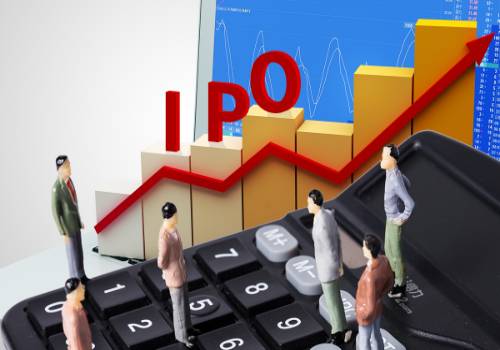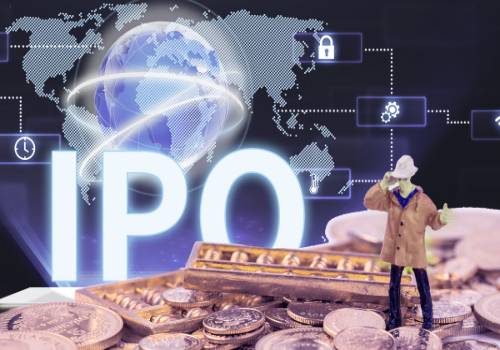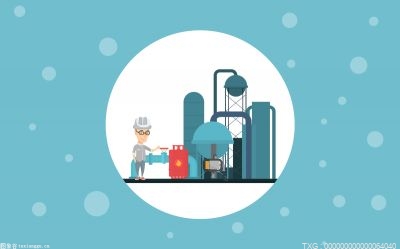 (资料图片)
(资料图片)
原文标题:South Korea and net zeroGreenwashing in SeoulA country that promised to lead on climate is lagging韩国与净零排放首尔“绿色洗白”一个承诺引领气候变化的国家却落后了South Korea, having sworn to lead the green transition, is holding it upThe country has given its polluting industries even longer to cut their emissions韩国曾发誓要引领绿色转型,但现在却迟迟没有行动韩国给了污染企业更长的减排时间[Paragraph 1]ADDRESSING THE UN‘s annual climate summit in 2009, South Korea’s then-president promised his country would be “an early mover when it comes to tackling climate change”. 在2009年的联合国年度气候峰会上,时任韩国总统发表讲话时承诺,韩国将成为“应对气候变化的先行者”。Lee Myung-bak pledged that South Korea would allocate the equivalent of 2% of GDP per year to the fight over the next five years and host an inter-governmental initiative, the Global Green Growth Institute, outside Seoul. 李明博承诺,韩国将在未来五年内每年拨出相当于国内生产总值2%的资金用于应对气候变化,并在首尔郊外主办一个政府间倡议--全球绿色增长研究所。“Instead of saying you first’,” said Mr Lee, the former head of Hyundai Construction, South Korea would henceforthact “me first”.现代建设公司前董事长李明博表示,“与其说'你先'”,不如’我先‘行动。
[Paragraph 2]Considering the shape of the country’s economy, this was ambitious. 考虑到韩国的经济状况,这是一个雄心勃勃的目标。South Korea’s rise from post-war destitution, to become the world’s 12th-largest economy, was driven by polluting heavy industry and fossil fuels. 韩国从战后的贫困中崛起,成为世界第12大经济体,由污染严重的重工业和化石燃料的推动发展。Perhaps predictably, then, neither Mr Lee nor his successors have done much to help the country meaningfully curbits emissions. 也许可以预见的是,李先生和他的继任者没有做很多事情来真正遏制排放问题。A decarbonisation “blueprint” recently released by the current government of Yoon Suk-yeol provides further reason to doubt that it will.现任总统尹锡悦最近发布的脱碳“蓝图”进一步证实了这个预言。[Paragraph 3]South Korea’s emissions did not peak until 2018, almost a decade after Mr Lee made his commitment and much later than in most other industrialised countries. 韩国的排放量直到 2018 年才达到峰值,距李明博的气候承诺近十年,而且比大多数其他工业化国家晚得多。The country subsequently adopt a legally binding commitment to reduce its emissions by 40% relative to their 2018 level by 2030, and to achieve net-zero emissions by 2050. 该国随后做出了具有法律约束力的承诺,即在2030年前将其排放量在2018年的基础上减少40%,并在2050年前实现净零排放。But this would be hard even with massive government intervention. 但即使有大规模的政府干预,这也很难实现。To achieve its net-zero target South Korea would have to reduce emissions by an average of % a year. 为了实现净零排放目标,韩国必须每年平均减少 % 的排放量。By comparison, the EU must reduce its emissions by an average of 2% between its baseline year and 2030, while America and Britain must achieve annual cuts of %.相比之下,欧盟必须在基准年到 2030 年之间平均减少2%的排放量 ,而美国和英国则必须实现每年 % 的减排量。[Paragraph 4]Far from broachingthe necessary serious measures, South Korea seems content to pay lip-service to the issue. 韩国非但没有提出必要的严肃措施,反而似乎还停留在气候问题的口头承诺上。In effect, Mr Yoon’s proposals take aim at the too-modest measures promised by his predecessor, Moon Jae-in. 实际上,尹先生的提议针对的是前任总统文在寅承诺的过于温和的措施。Besides institutingSouth Korea’s net-zero commitments, Mr Moon aimed to cut reliance on coal-fired electricity generation, from 42% of total generation to 22%. His government issued fairly modest subsidies to renewables. 除了制定韩国的净零排放承诺外,文在寅的目标是减少对燃煤发电的依赖,从占总发电量的 42% 降至 22%。他的政府为可再生能源提供了相当少的补贴。It also “instructed” South Korean industry to curb its emissions, from 261m tonnes a year in 2018 to 223m by 2030, without providing many regulatory or fiscal measures to help it do so. 政府还“指示”韩国工业要遏制排放量,从2018年的每年亿吨减少到2030年的亿吨,但没有提供许多监管或财政措施来帮助实现这一目标。Mr Yoon, while reaffirming South Korea’s headline targets, has back-pedalledon much of that.尹先生虽然重申了韩国的总体目标,但其中大部分目标却大打折扣。[Paragraph 5]He has cut his predecessor’s renewables subsidies, and also his targeted increase in renewables. 他削减了前任总统的可再生能源补贴,并削减了可再生能源增长目标。Mr Yoon has at least proposed a welcome boost to South Korea’s nuclear-power generation, which Mr Moon disliked on the basis of his supporters’ exaggerated safety concerns. 尹先生至少提出了一个值得欢迎的建议,那就是大力推动韩国的核能发电,而文在寅因担忧安全问题而放弃这一提议。But Mr Yoon has not yet revealed plans for new nuclear power stations. 但尹先生尚未透露新核电站的计划。Bowing to corporate pressure, he has also watered down his predecessor’s demands of industry. 迫于企业压力,他还淡化了前任总统对工业的脱碳要求。Its lobbyists complained that the pollution curbs demanded of businesses would “weaken industrial competitiveness”, destroy jobs and be a “burden” on the economy. 企业说客们抱怨称,对企业提出的污染控制要求将“削弱行业竞争力”,破坏就业机会,并成为经济的“负担”。Mr Yoon has both reduced and deferredthem. Around 75% of the wished-for industrial emissions cuts are now supposed to happen after 2027, which is when Mr Yoon is due to leave office.尹先生既减少又推迟了这些要求。目前预计约75%的工业减排目标将在2027年之后实现,届时尹先生将卸任。[Paragraph 6]His government claims South Korea will still meet its commitments for 2030. 他的政府声称,韩国仍将履行其2030年净零排放的承诺。Its promise to bring some nuclear power plants already under construction online and increase renewables, somehow or other, would at least help with that. 它承诺将一些已经在建的核电站投入使用,并增加可再生能源,无论如何,至少会对实现目标有所帮助。So, if realised, would the government’s talk of increasing use of hydrogen as an industrial fuel, as well as carbon-capture technology. 如果能够实现,政府关于增加氢气作为工业燃料的使用以及碳捕捉技术的说法也会实现。Mr Yoon has gone so far as to promise public investment, subsidies and loans for such clean technologies. 尹先生甚至承诺为这些清洁技术提供公共投资、补贴和贷款。But those measures are yet to materialise, and unless that changes it will be hard to accept the president’s claims at face value.但这些措施尚未落实,除非这种情况发生改变,否则很难从字面上接受总统的主张。[Paragraph 7]The main outcome of his blueprint is a signal to industry that there is no hurry, says Youn Se-jong of Plan , an NGO working on climate policy. “It’s only going to postpone the necessary transition.”尹世宗在致力于推动气候政策的非政府组织 任职,他表示总统蓝图的主要结果是向业界发出一个信号,即不着急。“但这只会推迟必要的过渡时间。”(恭喜读完,本篇英语词汇量732左右)原文出自:2023年6月24日《The Economist》Asia版块
精读笔记来源于:自由英语之路
本文翻译整理: Irene
本文编辑校对: Irene仅供个人英语学习交流使用。
【补充资料】(来自于网络)洗绿,绿色洗白Greenwashing是指企业或组织在营销、广告或宣传中使用虚假或夸大的环保标签和宣言,以掩盖其对环境可持续性的不负责任行为。这种行为旨在误导消费者,使其相信该公司或产品对环境友好,从而增加销售量和声誉。例子包括将不环保的产品标记为"绿色"、"可持续"或"环保",但实际上它们的生产过程可能含有有害物质,或者它们的包装和运输方式并不环保。Plan 是一个非政府组织,旨在应对气候变化和推动可持续发展。该组织成立于2020年,由联合国秘书长安东尼奥·古特雷斯发起。Plan 的名称源自巴黎协定中的目标,即限制全球变暖幅度在摄氏度以内。该组织的使命是通过全球范围内的行动,推动政府、企业和公众采取措施降低温室气体排放并适应气候变化。【重点句子】(3个)South Korea’s rise from post-war destitution, to become the world’s 12th-largest economy, was driven by polluting heavy industry and fossil fuels. 韩国从战后的贫困中崛起,成为世界第12大经济体,由污染严重的重工业和化石燃料的推动发展。But this would be hard even with massive government intervention. 但即使有大规模的政府干预,这也很难实现。Far from broaching the necessary serious measures, South Korea seems content to pay lip-service to the issue. 韩国非但没有提出必要的严肃措施,反而似乎还停留在气候问题的口头承诺上。
-
 《经济学人》双语:韩国净零排放承诺只是嘴上说说?_环球短讯原文标题:SouthKoreaandnetzeroGreenwashinginSeoulAcountrythatpromi
《经济学人》双语:韩国净零排放承诺只是嘴上说说?_环球短讯原文标题:SouthKoreaandnetzeroGreenwashinginSeoulAcountrythatpromi -
 天天快播:中国代表团在人权理事会敦促有关国家保护移民权利新华社日内瓦6月26日电中国代表团26日在联合国人权理事会第53届会议发
天天快播:中国代表团在人权理事会敦促有关国家保护移民权利新华社日内瓦6月26日电中国代表团26日在联合国人权理事会第53届会议发 -
 环球简讯:硬核科技论 | 保时捷918继任者纯电化!全新Mission X这些技术值得了解现在绝大多数电动车都是基于400V的平台,然后极狐和阿维塔的个别车型支
环球简讯:硬核科技论 | 保时捷918继任者纯电化!全新Mission X这些技术值得了解现在绝大多数电动车都是基于400V的平台,然后极狐和阿维塔的个别车型支 -
 去年我国光伏组件出口额同比增长72.1%北京日报客户端|实习记者夏骅26日,记者从中国光伏行业协会获悉,2022
去年我国光伏组件出口额同比增长72.1%北京日报客户端|实习记者夏骅26日,记者从中国光伏行业协会获悉,2022 -
 资讯推荐:700余公里,内蒙古上演爱心转运6月25日午饭过后,42岁的孙女士正在为第二天即将中考的儿子做着考前准
资讯推荐:700余公里,内蒙古上演爱心转运6月25日午饭过后,42岁的孙女士正在为第二天即将中考的儿子做着考前准 -
 当前快看:新城控股6月27日快速上涨以下是新城控股在北京时间6月27日10:53分盘口异动快照:6月27日,新城
当前快看:新城控股6月27日快速上涨以下是新城控股在北京时间6月27日10:53分盘口异动快照:6月27日,新城 -
 光明酸牛奶饮品 光明酸奶|每日看点一、当前光明酸牛奶饮品的核心用户1 企业高管和商务人士——这部分用户
光明酸牛奶饮品 光明酸奶|每日看点一、当前光明酸牛奶饮品的核心用户1 企业高管和商务人士——这部分用户 -
 聚焦2023全球智博会:讯飞星火燎动苏城-每日看点(周建琳)25日,2023全球人工智能产品应用博览会(简称“全球智博会”)在
聚焦2023全球智博会:讯飞星火燎动苏城-每日看点(周建琳)25日,2023全球人工智能产品应用博览会(简称“全球智博会”)在 -
 美锦能源6月27日盘中涨停以下是美锦能源在北京时间6月27日09:46分盘口异动快照:6月27日9点46分
美锦能源6月27日盘中涨停以下是美锦能源在北京时间6月27日09:46分盘口异动快照:6月27日9点46分 -
 第二十届全英普通话朗诵比赛颁奖典礼在伦敦举行-天天看点十届全英普通话朗诵比赛颁奖典礼在伦敦举行 当地时间6月25日,英国
第二十届全英普通话朗诵比赛颁奖典礼在伦敦举行-天天看点十届全英普通话朗诵比赛颁奖典礼在伦敦举行 当地时间6月25日,英国 -
 “教育+数字化”来了 看这些学校做了哪些探索_天天热资讯央视新闻客户端消息教育部日前在湖北武汉举行2023年全国教育数字化现场
“教育+数字化”来了 看这些学校做了哪些探索_天天热资讯央视新闻客户端消息教育部日前在湖北武汉举行2023年全国教育数字化现场 -
 老表1、老表(lǎobiǎo),称谓。2、又作“老俵”。3、江西省方言。4、意
老表1、老表(lǎobiǎo),称谓。2、又作“老俵”。3、江西省方言。4、意 -
 辽港股份06月26日被沪股通减持97.6万股06月26日,辽港股份被沪股通减持万股,最新持股量为2亿股,占公司A股总
辽港股份06月26日被沪股通减持97.6万股06月26日,辽港股份被沪股通减持万股,最新持股量为2亿股,占公司A股总 -
 文学专家为你解读:如何用木扇传递心意,送给老婆最有意义的生日礼物?你需要的东西薄木锯钻头砂纸枢小垫圈丝带工艺胶木扇有两种基本设计
文学专家为你解读:如何用木扇传递心意,送给老婆最有意义的生日礼物?你需要的东西薄木锯钻头砂纸枢小垫圈丝带工艺胶木扇有两种基本设计 -
 国际大体联足球世界杯中国代表队选拔赛在晋江落幕-世界快讯10月来晋江再战世界杯北师大女足欢庆晋级 晋江新闻网6月26日讯昨日
国际大体联足球世界杯中国代表队选拔赛在晋江落幕-世界快讯10月来晋江再战世界杯北师大女足欢庆晋级 晋江新闻网6月26日讯昨日 -
 全球快看:含有地名的诗句有哪些_含有成都地名的诗句1、有关描写成都的古诗词有:陆游《成都行》倚锦瑟,击玉壶,吴中狂士
全球快看:含有地名的诗句有哪些_含有成都地名的诗句1、有关描写成都的古诗词有:陆游《成都行》倚锦瑟,击玉壶,吴中狂士 -
 环球观察:黄牛网上订火车票官网_www 12306 cn网上订火车票官网1、360就是打不开的。2、用IE可以。本文就为大家分享到这里,希望小伙
环球观察:黄牛网上订火车票官网_www 12306 cn网上订火车票官网1、360就是打不开的。2、用IE可以。本文就为大家分享到这里,希望小伙 -
 我在仙界捡垃圾萧耀文最新章节_我在仙界捡垃圾萧1、小说叫《穿越到诛仙》,该小说简介:这时的杨凡心灰意冷的说“难道
我在仙界捡垃圾萧耀文最新章节_我在仙界捡垃圾萧1、小说叫《穿越到诛仙》,该小说简介:这时的杨凡心灰意冷的说“难道 -
 长春亚泰巴西外援埃里克转会加盟日本球队町田泽维亚-每日关注1月16日,长春亚泰俱乐部官方宣布,效力球队两个赛季的巴西外援埃里克
长春亚泰巴西外援埃里克转会加盟日本球队町田泽维亚-每日关注1月16日,长春亚泰俱乐部官方宣布,效力球队两个赛季的巴西外援埃里克 -
 【足协杯】晋级16强!梅州客家队点球淘汰苏州东吴队-今日要闻罗德里格是唯一随队出征的外援,由于两名外援吉森和洛布扎尼泽在本赛季
【足协杯】晋级16强!梅州客家队点球淘汰苏州东吴队-今日要闻罗德里格是唯一随队出征的外援,由于两名外援吉森和洛布扎尼泽在本赛季 -
 天天视讯!棘怎么读英语(棘怎么读)来为大家解答以下的问题,怎么读英语,棘怎么读这个很多人还不知道,现
天天视讯!棘怎么读英语(棘怎么读)来为大家解答以下的问题,怎么读英语,棘怎么读这个很多人还不知道,现 -
 鱼与熊掌不可兼得的动机冲突属于_鱼与熊掌不可兼得是正相关1、“鱼与熊掌不可兼得”出自《孟子,告子上》,它深刻说明了一个道理
鱼与熊掌不可兼得的动机冲突属于_鱼与熊掌不可兼得是正相关1、“鱼与熊掌不可兼得”出自《孟子,告子上》,它深刻说明了一个道理 -
 世界微头条丨全球连线|2023夏季达沃斯论坛准备工作基本就绪第十四届夏季达沃斯论坛将于6月27日至29日在天津举行,届时将有来自90
世界微头条丨全球连线|2023夏季达沃斯论坛准备工作基本就绪第十四届夏季达沃斯论坛将于6月27日至29日在天津举行,届时将有来自90 -
 50装载机型号规格尺寸(50装载机型号及规格)_天天热推荐来为大家解答以上的问题。50装载机型号规格尺寸,50装载机型号及规格这
50装载机型号规格尺寸(50装载机型号及规格)_天天热推荐来为大家解答以上的问题。50装载机型号规格尺寸,50装载机型号及规格这 -
 Mysteel日报:全国中厚板成交一般 预计明日中板价格弱稳调整为主一、市场总结 26日黑色系期货震荡走弱,现货市场交投氛围冷清。周初
Mysteel日报:全国中厚板成交一般 预计明日中板价格弱稳调整为主一、市场总结 26日黑色系期货震荡走弱,现货市场交投氛围冷清。周初 -
 每日看点!全国首艘海陆一体化智能FPSO开启交付之路6月26日清晨5时许,全国首艘海陆一体化智能FPSO(浮式生产储卸油装置)
每日看点!全国首艘海陆一体化智能FPSO开启交付之路6月26日清晨5时许,全国首艘海陆一体化智能FPSO(浮式生产储卸油装置) -
 小红书投资M Stand咖啡公司-环球热头条企查查APP显示,近日,“MStand”咖啡关联公司上海艾恰餐饮管理有限公
小红书投资M Stand咖啡公司-环球热头条企查查APP显示,近日,“MStand”咖啡关联公司上海艾恰餐饮管理有限公 -
 电力板块涨3.71% 桂东电力等涨10.04%居首电力板块涨3 71%桂东电力等涨10 04%居首
电力板块涨3.71% 桂东电力等涨10.04%居首电力板块涨3 71%桂东电力等涨10 04%居首 -
 【公告精选】嘉友国际:董监高拟合计减持公司不超4.44%股份;大地海洋:决定继续推进公司重大资产重组看公告,小e抢先报!深圳新星:副总经理夏勇强拟大宗交易减持公司股份
【公告精选】嘉友国际:董监高拟合计减持公司不超4.44%股份;大地海洋:决定继续推进公司重大资产重组看公告,小e抢先报!深圳新星:副总经理夏勇强拟大宗交易减持公司股份 -
 职称评定网上申报系统(河北省人事厅职称网)职称评定网上申报系统,河北省人事厅职称网这个很多人还不知道,现在让
职称评定网上申报系统(河北省人事厅职称网)职称评定网上申报系统,河北省人事厅职称网这个很多人还不知道,现在让

